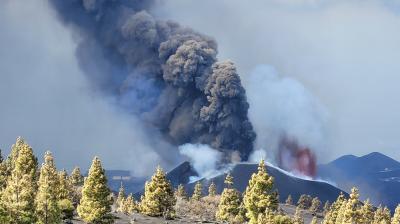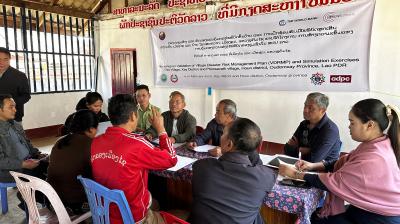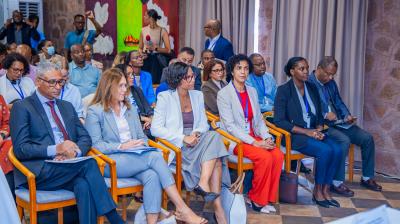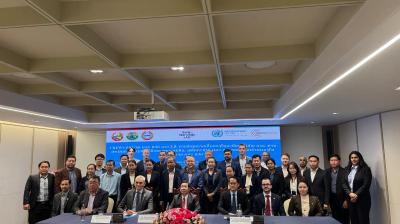Libya floods show need for multi-hazard early warnings, unified response

UN Humanitarian Relief Coordinator Martin Griffiths said that "climate and capacity have collided to cause this terrible, terrible tragedy" in a country where 300,000 people already need humanitarian aid. He said the floods, just like the earthquake in Morocco, would stretch government capacities to the limit in the coming months.
The Office for the Coordination of Humanitarian Affairs estimated that more than 880,000 people lived in areas impacted by the floods.
"The tragedy in Libya highlights the devastating and cascading consequences of extreme weather on fragile states and shows the need for a multi-hazard early warnings which embrace all levels of government and society, said WMO Secretary-General Prof. Petteri Taalas.
Libya’s National Meteorological Center did indeed issue early warnings for this extreme weather event, which saw unprecedented rainfall levels (414.1 mm in 24 hours in one station) which caused the flash floods and the collapse of the dams. The warnings were issued for heavy precipitation and floods, but didn’t address the risk posed by the ageing dams.
"The fragmentation of the country’s disaster management and disaster response mechanisms, as well as deteriorating infrastructure, exacerbated the enormity of the challenges. The political situation is a driver of risk, as we are seeing in many countries currently," said Prof. Taalas.
"The National Meteorological Center faces major gaps in its observing systems. Its IT systems are not functioning well and there are chronic staff shortages. The National Meteorological Center is trying to function, but its ability to do so is limited. The entire chain of disaster management and governance is disrupted," he said.
"The tragedy highlights the philosophy behind the Early Warnings for All initiative to improve the accuracy and availability of impact-based forecasts, and to ensure that they reach everyone and lead to action. WMO sends its condolences to the Libyan people. We are committed to working with partners to ensure Early Warnings For All," said Prof. Taalas.
Background
Libya’s National Meteorological Centre said that Storm Daniel reached a peak in northeastern Libya on 10 September, with strong winds of 70 - 80 km/h. This caused communications interruption, the fall of electricity towers and trees. Torrential rains of between 150 - 240 mm caused flash floods in several cities, including Al-Bayda, which recorded the highest daily rainfall rate of 414.1 mm (from 10 Sep 8am to 11 Sep 8am). The National Meteorological Centre said this was a new rainfall record.
Libya's National Meteorological Centre issued early warnings for this extreme weather event 72 hours before its occurrence, and notified all governmental authorities by e-mails and through media urging them to take more care and caution, and also urging them to take preventive measures. A State of Emergency was announced in the eastern regions based on these warnings.
However, the heavy rainfall caused two ageing dams to burst. The flash floods swept away entire neighborhoods in Derna, along with their residents who were sleeping in the homes at the time.
More information:
- WMO Member:
- Libya (State of)










